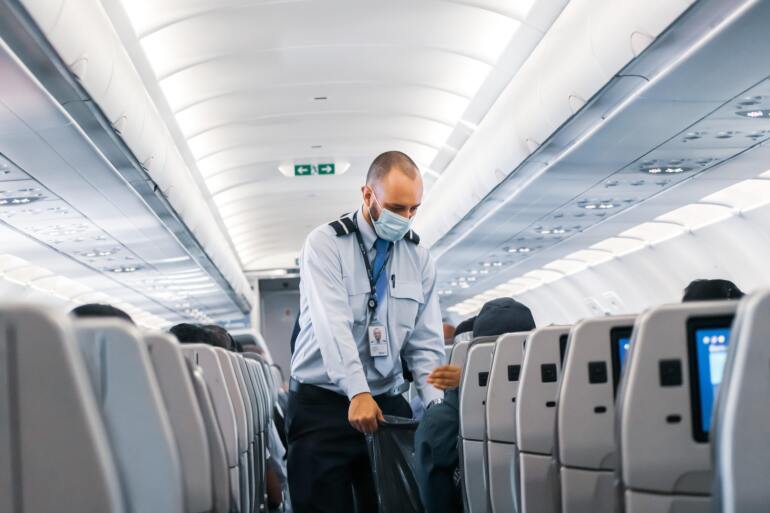Legal Update
Apr 15, 2021
COVID-19 Vaccine Passports: The Fast Lane to the Resumption of International Business Travel?
Visit our COVID-19 Vaccine Resource Center.
Subscribe to our International Employment Law mailing list here.
The norm of international travel has been materially disrupted by the COVID-19 pandemic. However, with the commencement of the worldwide rollout of COVID-19 vaccines, growing interest in COVID-19 Vaccination Passports, and the establishment of international travel bubbles, the outlook for travel is becoming increasingly hopeful - but what effect might this have on employers?
COVID-19 Vaccination Passports
Many countries are considering the introduction of COVID-19 Vaccination Passports as a means of identifying individuals who are at lower risk of acquiring or transmitting COVID-19, with the idea being that those who are vaccinated are to be subject to less stringent control measures, and permitted to travel.
For example, in early 2021, Israel introduced a ‘Green Pass’ certificate system that allows those who have been vaccinated to enjoy more social freedoms such as attend restaurants and gyms. Further, in March 2021, the European Commission proposed to develop a “Digital Green Certificate” to facilitate safe and free movement inside the European Union. This Certificate will be proof that a person has been vaccinated against COVID-19, received a negative test result or has recovered from COVID-19, and is therefore permitted to travel.
The Australian Government’s COVID-19 Vaccination Policy states that there may “be circumstances where the Australian Government and other governments may introduce border entry or re-entry requirements that are conditional on proof of vaccination.
Despite this and the fact that airlines have advised that proof of vaccination will be a pre-requisite to flying, it is yet to be seen what impact an individual’s vaccination status will have on international travel to countries that have mandatory quarantine programs for overseas arrivals, such as Australia.
Travel bubbles
There is a growing trend for countries to form agreements with other countries to open their borders without strict quarantine requirements, including hotel quarantine programs.
A recent example of this is the Australia and New Zealand travel bubble which will come into effect from 19 April 2021, allowing quarantine-free travel between the countries. Speculation has arisen that towards the later end of 2021 travel bubbles could be established between Australia and other countries such as Singapore, Japan and Vietnam.
What impact does this have for employers?
With the likely increase in travel arising from the probable rollout of COVID-19 Vaccine Passports, as well as new cross-border and travel bubble arrangements, employers should start to turn their minds to some of the possible implications, including:
- If a worker holding a COVID-19 Vaccine Passport is required to undertake travel for business purposes, what other control measures need to be implemented in order for the employer to discharge their health and safety duties?
- What happens if a worker holding a COVID-19 Vaccine Passport refuses to comply with a direction by the employer to undertake travel for business purposes?
- Are there consultation requirements? This may be of particular importance in circumstances where COVID-19 Vaccine Passports are not a government mandated requirement.
- Issues such as whether all vaccines are equal (i.e. specific vaccine recognition in terms of efficacy and effectiveness).
- What verification and record-keeping process should be implemented and maintained in relation to recognizing and recording workers’ COVID-19 Vaccine Passports?
- What are the privacy considerations in respect of such record-keeping?
- How and if COVID-19 Vaccine Passports will be considered as part of any health and safety framework/system, including hierarchy of control measures for workplaces?
- What are the considerations for workers attending worksites and client worksites?
- What are the processes for recognising COVID-19 Vaccine Passports for visitors, customers, contractors, and other business partners?
Paul and Kristen are part of Seyfarth’s International Employment Law team who help leading employers navigate global workforce issues. To find out more or for help thinking about some of the above questions when considering travel for your employees, please reach out to them or anyone else on our specialist team.
For more information on COVID passports, you can see our earlier alerts (here, here, and here).


